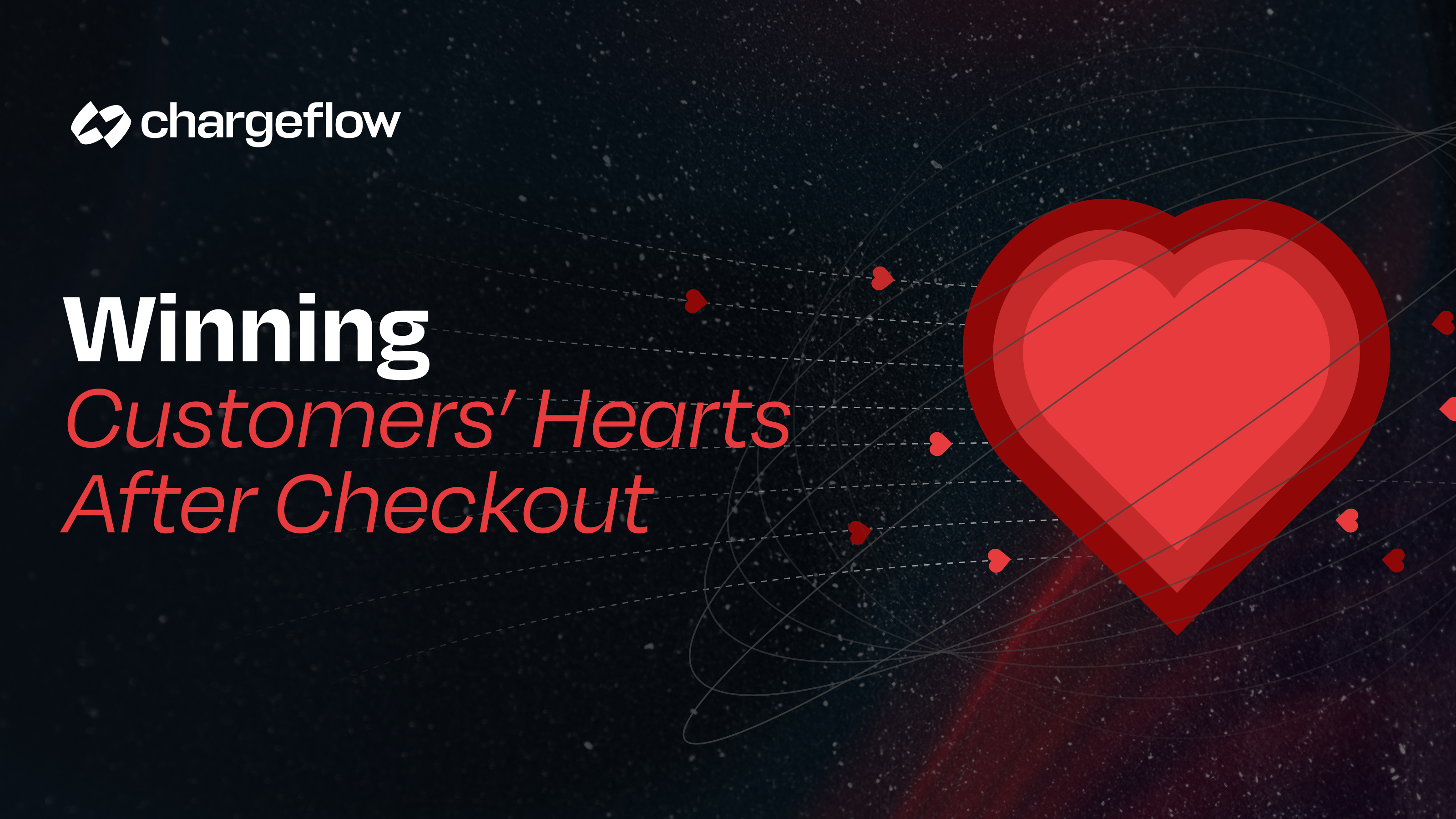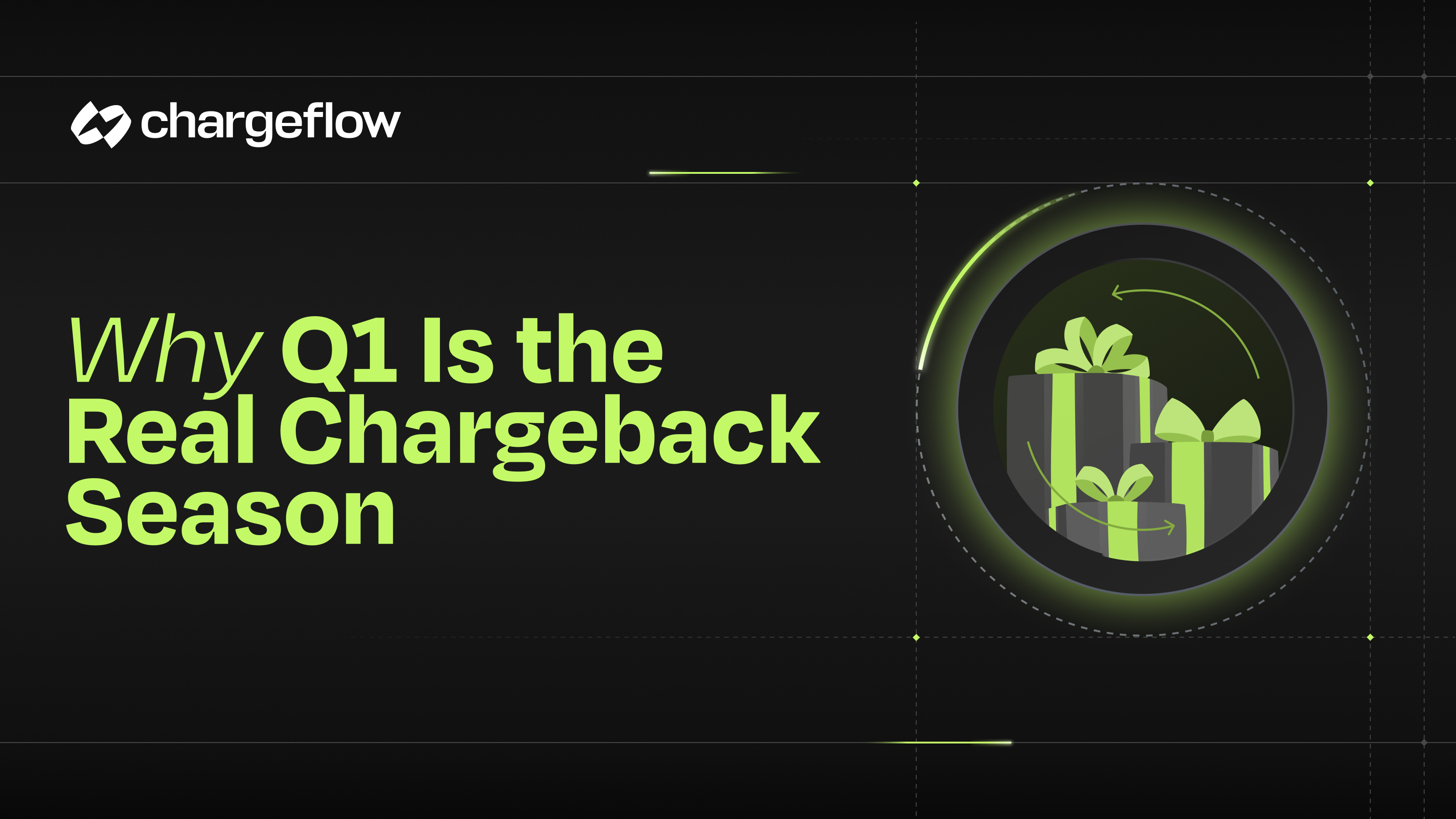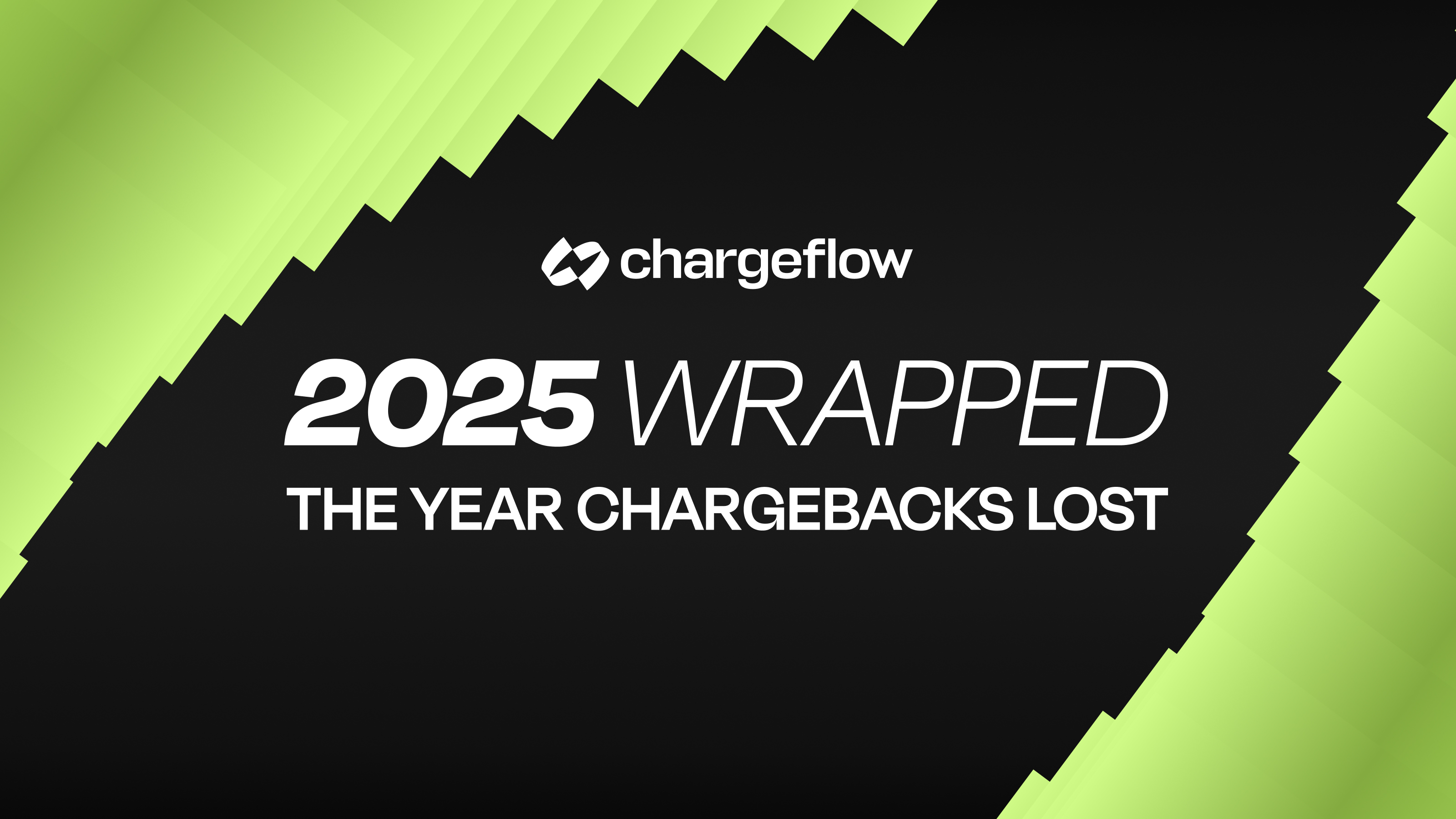VISA Rapid Dispute Resolution for Chargeback Prevention: A Comprehensive Guide

Chargebacks?
No longer your problem.
Recover 4x more chargebacks and prevent up to 90% of incoming ones, powered by AI and a global network of 15,000 merchants.
Rapid Dispute Resolution (Visa RDR) gives merchants real-time alerts of potential disputes, allowing them to proactively address and resolve disputes.
TL;DR: Rapid Dispute Resolution, or RDR for short, gives merchants real-time alerts of potential disputes, allowing them to proactively address and resolve disputes before they result in a chargeback. Merchants can construct their RDR decision parameters to accept or deny specific disputes on autopilot.
Visa Rapid Dispute Resolution is one of the ways Visa attempts to help merchants optimize their refund and chargeback processes for more effective dispute remediation.
RDR helps merchants prevent chargebacks and quickly resolve disputes on transactions made with Visa cards. RDR makes dispute resolution fast, effective, and efficient – stearing cardholders away from escalating disputes to a chargeback.
The merits of the program are clear. But does the practical application reflect the tremendous promise of a streamlined dispute resolution mechanism?
Let’s find out.
Visa Rapid Dispute Resolution (RDR) Explained
Rapid Dispute Resolution, or RDR for short, is an upgraded version of Visa's legacy platform called the Chargeback Dispute Resolution Network (CDRN).
The company launched this new service in April 2021, after it acquired Verifi, to automate dispute resolutions in the pre-dispute stage. RDR was later made a mandatory service for issuers in October 2021. However, service providers can still use CDRN if they haven’t upgraded to RDR.
Under RDR, merchants can respond to a dispute within 48 hours, providing evidence to support their case. Documentation deemed compelling evidence can include receipts, invoices, or other drafts showing the cardholder authorized the disputed transaction and delivery of goods or services as promised.
If the merchant's response meets that objective, dispute resolution will be in their favor, with the chargeback rejected. But if the merchant's response is invalid, the chargeback will proceed.
RDR also gives merchants real-time alerts of potential disputes, allowing them to proactively address and resolve issues before they result in a chargeback. Merchants can access detailed dispute information and case history, which gives them valuable insights into their transaction disputes and helps them identify/prevent future disputes.
Overall, the Visa RDR program aims to provide merchants with a more streamlined and efficient dispute resolution process. It reduces the time and resources required to resolve disputes while helping you prevent chargebacks.

How Does Visa Dispute Resolution Service Work?
The Visa RDR program aims to help merchants avoid chargeback liability by refunding the cardholder.
That way, you can potentially preempt disputes from escalating to chargebacks. Or allow the winnable chargebacks to proceed.
Here's how the process works:
- A cardholder initiates a dispute with a Visa RDR-participating credit card issuer.
- The issuer submits the dispute to Visa Resolve Online (VROL), Visa's online dispute resolution platform.
- If the transaction is RDR eligible, the flow pauses for a 72 hours Pre-dispute RDR Auto Decision.
- At this Auto Decision stage, the system can remediate the dispute automatically. But if that doesn't happen, the merchant can track down the dispute and decide whether or not to resolve it by refunding the transaction.
- If the vendor accepts the refund request, the loop closes: dispute resolved, acquirer credits issuer, and chargeback averted. Transactions resolved with RDR do not impact your dispute ratio.
- But if you decline the refund request, the VROL system transfers Visa disputes through Allocation and Collaboration workflows and sends disputes to the acquirer. The same goes for non Visa RDR-eligible transactions.
That brings us to the next question:
What Are The Benefits of Visa RDR?
RDR helps minimize the chances of credit card chargebacks happening. Hence the benefits accrue to both issuers, merchants, and cardholders –as these are the primary stakeholders in a chargeback dispute.
Below are the specific benefits each of the stated parties enjoy.
Benefits for Card Issuers
Visa RDR allows issuers to resolve card disputes more quickly and efficiently. With that, issuers deal with fewer chargebacks, improving the overall customer experience for cardholders and increasing their market share.
Cardholders would be more likely to continue using their Visa cards with the assurance of quick and efficient dispute remediation.
Plus, RDR helps to improve the relationship between card issuers and merchants. Chargebacks are “torn in the flesh” for merchants. Resolving disputes efficiently helps reduce chargeback issuances. It makes merchant’s lives easier, keeps their cost in check and gives them the peace of mind of a mutual client-processor relationship.
Overall, Visa RDR helps card issuers reduce chargeback-associated costs, improve customer experience and maintain good relationships with merchants.
Benefits for Merchants
Visa RDR gives merchants some level of control over their chargeback situation. For example, suppose a cardholder is seeking remediation for double billing error. Conventionally they’d take the chargeback route. But with the RDR pre-dispute system, you can construct a set of rules to evaluate the dispute against predetermined metrics and decide whether or not you should accept liability. If they have a legitimate case of double billing, you can refund the cardholder and avert the impending chargeback.
That saves you the dispute fee and ensures your chargeback rate remains in check.
Another instance is when a cardholder files a dispute on a low-dollar transaction. Because you don’t have any system for effective decisioning regarding such issues, you’ll have to represent or accept the chargeback –after the cardholder has filed it. But with RDR, you can set parameters for such cases. You can fix your systems to refund disputes under a given dollar value.
Aside from transaction value, other RDR decisioning metrics could be the chargeback reason code, transaction date, card issuer BIN, and currency code.
So, is Visa RDR the silver bullet for chargeback mitigation? The answer is no! And we’ll touch on that shortly.
Benefits for Cardholders
Studies show that speed and simplicity (36.3%), using a secure service (36.2%), and using a trusted brand (15.5%) are consumers’ priorities for online payments. Hence, RDR is beneficial to cardholders in that it ensures frictionless refund experiences.
Resolving disputes more efficiently allows cardholders to prevent financial losses for unauthorized transactions and helps improve the overall customer experience.
Rapid Dispute Resolution: How Do You Get Started?
Getting started with Rapid Dispute Resolution involves specific steps and conditions, as highlighted below:
#1: Enrolling
If you're a CDRN client, you can obtain a CDRN Agreement codicil to upgrade to RDR. Otherwise, you can contact your relationship manager or customer support rep to enroll you.
#2: Create Pre-decision Checks
After completing the enrollment form, the next step is constructing your RDR decision parameters. Visa RDR will then use that rule to act on your behalf in accepting or denying specific disputes.
#3: Dispute Remediation
RDR helps you remediate disputes promptly. When a cardholder initiates a dispute with an RDR participating issuer, the case goes to Visa Resolve Online first, as noted earlier. That allows you to address the issue based on predefined parameters.
#4: Reconciliation and Analyses
Once you've accepted liability and your acquirer debited your merchant account, the next step is to treat the deduction as you would when accounting for chargebacks.
Visa’s reporting method for RDR is the same as how they treat chargebacks.
Equally vital, you should do your due diligence after the entire process to ascertain where the loopholes are, pinpoint dispute triggers and fraud patterns, enhance best practices and define returns on investment.
Visa RDR is Great, But It's Not a Cure-All
One thing no merchant wants is for chargebacks to sneak up on them. Rapid Dispute Resolution can help you avoid that.
But then again, they can also create a double negative. Here's what I mean: if a cardholder files a meritless chargeback, refunding that means throwing away your money. You want such false disputes to proceed to the chargeback stage so you can represent and recover your revenue.
So what should you do?
If you have severe chargeback issues due to fraud or clerical errors or a considerable amount of disputed orders of low dollar value, Visa RDR can be a great asset.
But Visa RDR is only one side of the equation. Pairing RDR with Chargeflow will help you construct a 360 order protection instrument for your transactions. You can be sure that you have the requisite data and tools for effective chargeback decisions.

Chargebacks?
No longer your problem.
Recover 4x more chargebacks and prevent up to 90% of incoming ones, powered by AI and a global network of 15,000 merchants.
















































.png)








